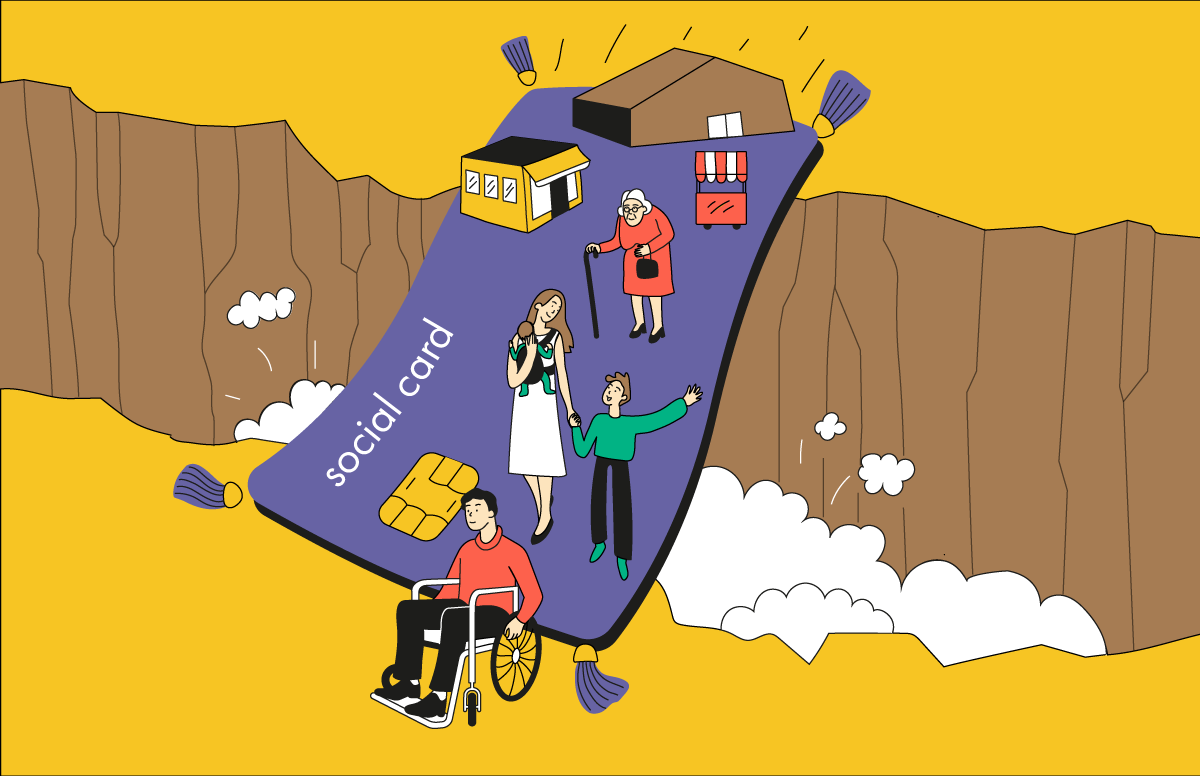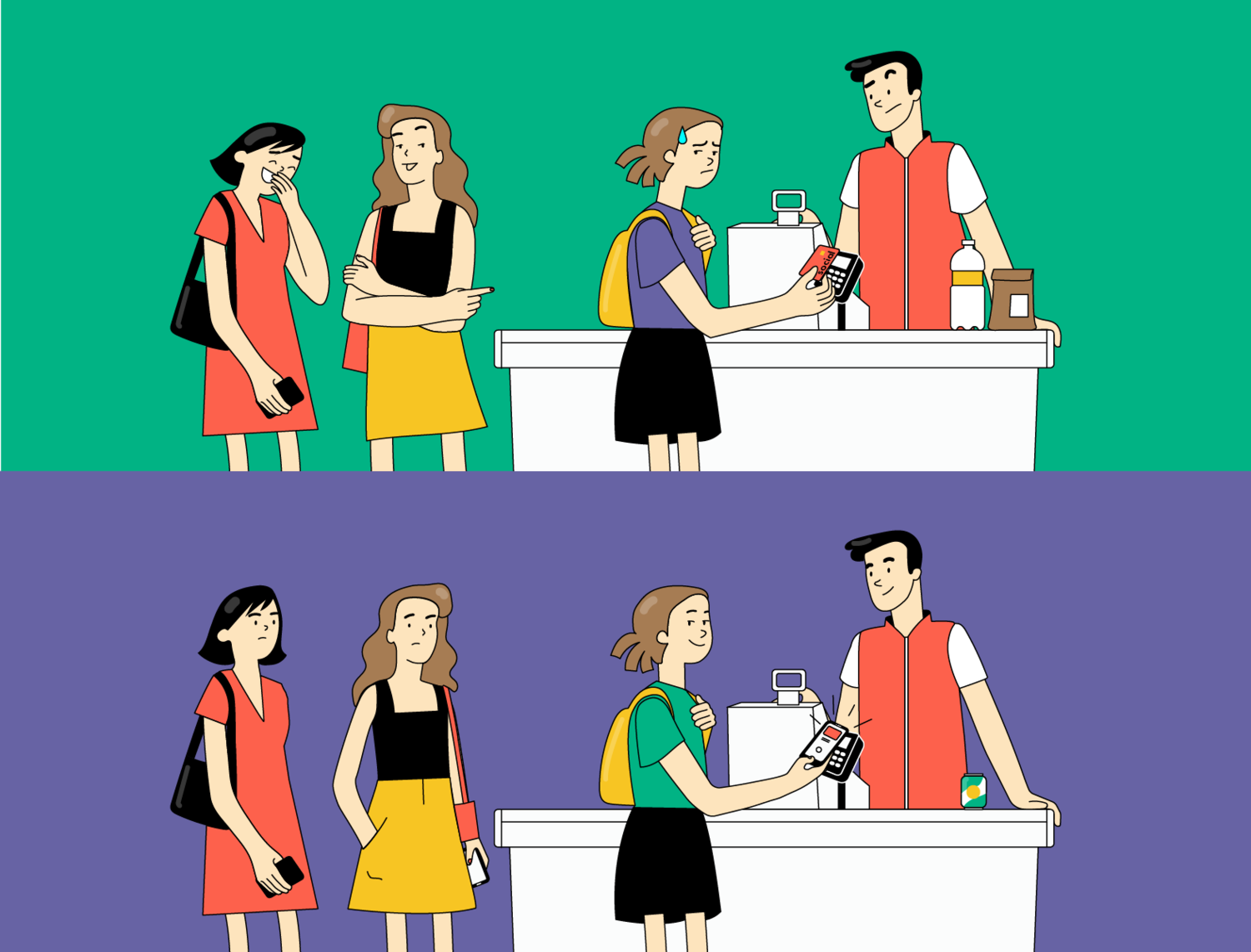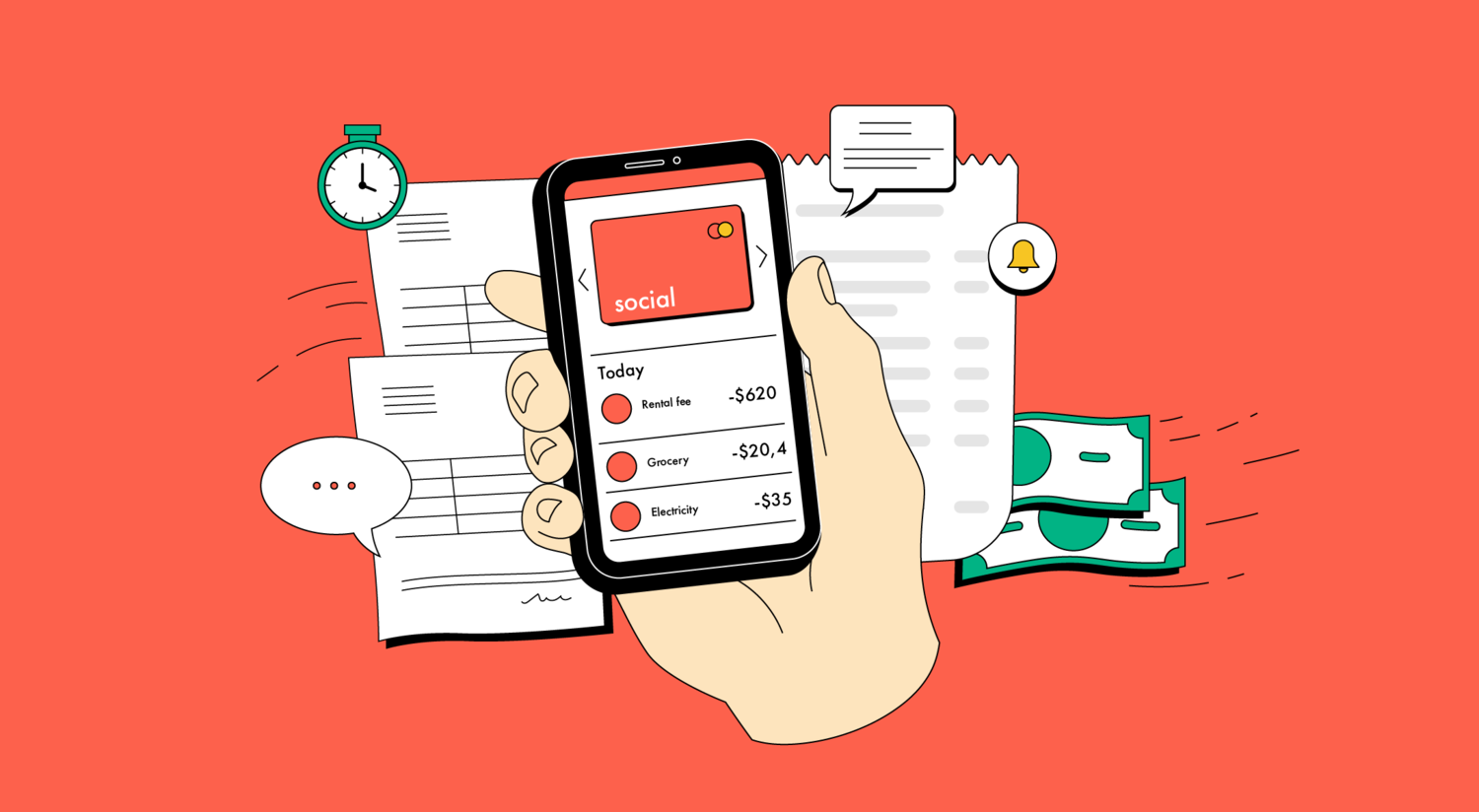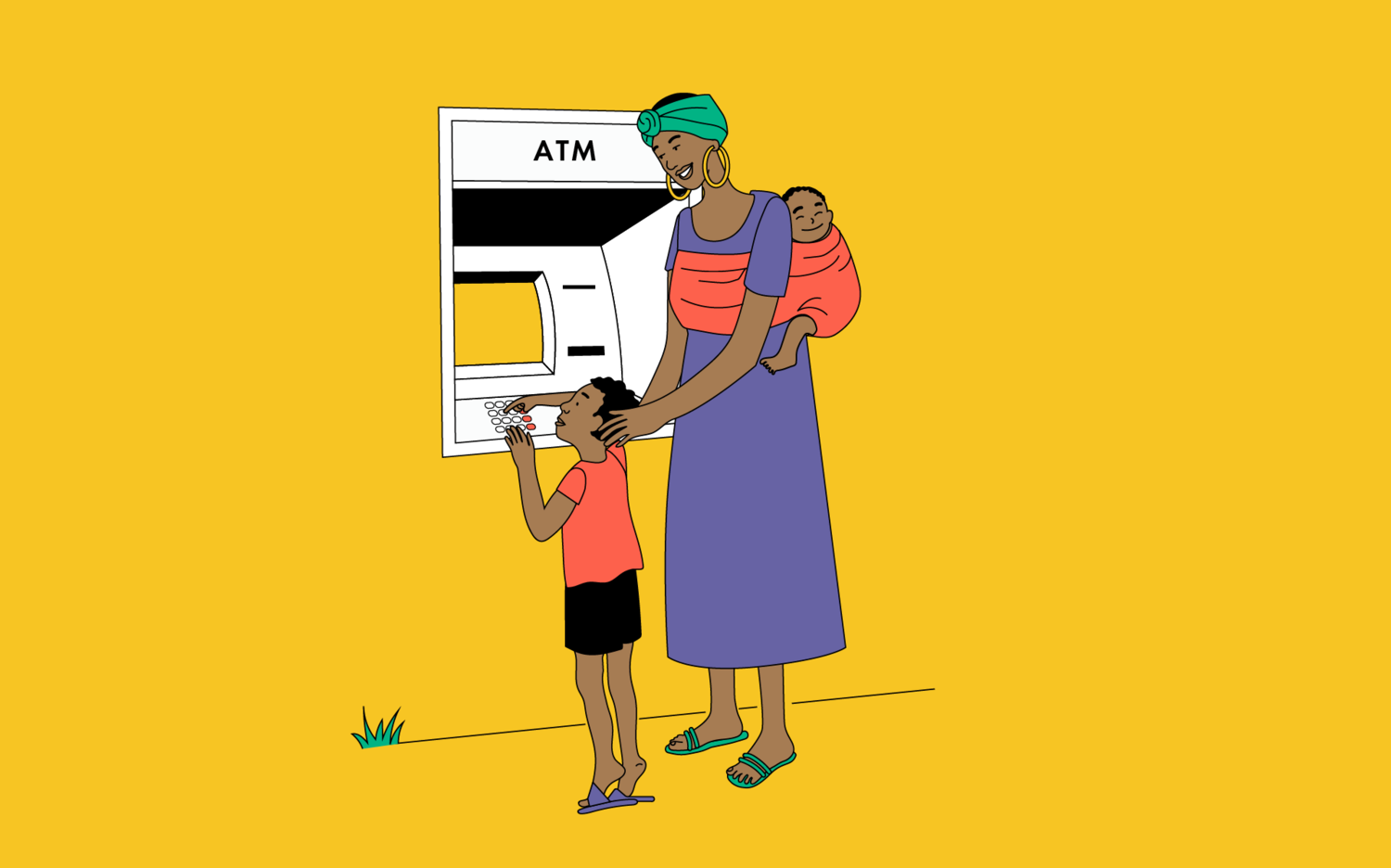Way4 Social Cards: harnessing digital payment technology to impact welfare programs

Digital Welfare Programs: Safe and Inclusive?
Although digital welfare programs have been praised, it has also raised questions on whether digital technology is a safe and inclusive way of distributing benefits to those in need. Regarding this, the World Bank has defined four necessary considerations when implementing social programs using digital technology.
-
Inclusion means that services should be easily available to target beneficiaries, even if they are in remote and hard-to-reach areas.
-
Reliability requires compliance with standards and oversight mechanisms.
-
Data protection means that private companies dealing with data must be trustworthy and subject to national laws regarding privacy and data protection.
-
Sustainability avoids reliance on particular vendors or technology.
In view of this, companies offering digital solutions to governments must reassure the public that the most vulnerable members of society are technologically safe from exploitation. These partners must also be known for maintaining transparency and compliance during financial transactions.
For OpenWay, these values and concerns have always been at the forefront with its experience in developing card issuing and acquiring, consumer finance, national switching and digital wallet systems, often for disadvantaged and underbanked populations. The company has drawn on its best practices to create Way4 Social Cards, a product especially designed for governments and financial institutions to flexibly implement social welfare programs. What does this software solution offer, and how can it help meet the challenges faced by social programs today?
A Flexible Solution for Targeted Distribution and Consumption
Way4 Social Cards responds to the needs of targeted distribution and consumption with sophisticated and flexible technology. As with any Way4 solution, the success of Way4 Social Cards revolves around its secure, real-time data processing. For example, it offers automated calculation of taxes and discounts that can be instantly modified as need arises, and authorization restrictions to categories of goods or to particular merchants. Merchants would get automated reimbursement for subsidized goods and not worry about possible inconveniences for participating in a welfare scheme.
As for governments, Way4 helps social departments track the effectiveness of social schemes by exporting data real-time to secure, user-friendly workbenches, where data access can be modified according to pre-defined hierarchy. Does the government need to report on the effect of a program on a group of beneficiaries, a time period, or a certain geographic region? Data on these and other criteria are readily available through data windows and APIs which create detailed, easily configurable reports.
.gif?width=1000&height=514&name=ezgif.com-optimize%2B(3).gif)
Utilize Familiar Channels, Look Towards Digital Sustainability
Way4 Social Cards allows governments and banks to make the most of existing infrastructure and channels, cutting costs and optimizing their budget. Maria Vinogradova, Head of Strategy and Market Intelligence at OpenWay, explains: “We offer a digital solution that is safe, effective and convenient, utilizing a common tool that is already in the hands of buyers and sellers – the smartphone”. Are virtual accounts and mobile apps an effective way of dispensing funds over plastic? There is no one-answer-fits-all, but with Way4 Social Cards, banks and governments can choose any or all of these means. Way4 supports any form for social cards, but the recommended base product is a domestic virtual card with an optional plastic version and tokenization via mobile app.
It is noteworthy that Way4 is already being successfully used by leading banks in developing nations to offer millions of unbanked mobile phone users consumer finance opportunities, P2P remittances, and more along with traditional card products. User onboarding for these products is extremely fast and easy and requires little more than a mobile phone. A social card can benefit unbanked beneficiaries in a similar way as a digital tool, introducing them to financial products in general.
Banks who start using Way4 for social programs also benefit. With this platform, they can digitalize their payment business beyond the program and launch new products and services: card issuing and acceptance across various channels, channel management, transaction routing, digital wallets, to name a few. The digital payment infrastructure can be used to quickly create other products for financially disadvantaged or underbanked populations such as instant credit.
Advanced Technology Saves Social Card Programs from Common Pitfalls
OpenWay has always been concerned not only about welfare, but of the well-being of its end users and the impact of payments on the social environment where they are made. Maria Vinogradova explains that often technological and social limitations are directly related. She says, “Unfortunately, many platforms which are used for social projects are technologically behind and are not sophisticated or flexible enough to accommodate the needs of targeted distribution and consumption.” A quick roundup of the most commonly noted pain points reveals how Way4 Social Cards can address the following problems:
Problem #1. People are unable to buy necessities at stores where non-subsidized items like alcohol and tobacco are sold.
This is a real situation faced by people when their social cards are able to tell where something is being purchased, but not what. But why ban people from stores, when it is only necessary to ban the purchase of select items in stores? Although Way4 can restrict acceptance of social cards to selected merchants, its Level 3 data analysis allows for authorization or restriction of specific products. The cardholder is not limited to a certain store chain, which may be a problem in rural areas with few merchants to choose from.
Problem #2. Social stigma attached to use of card make people embarrassed and ashamed to show it at payment terminals.
An often overlooked problem, nevertheless, in some countries it has led to beneficiaries moving out of zones where cards are used, or not using the cards at all. Way4 Social Cards give beneficiaries of social programs the same payment method choices as, arguably, classic bankcard holders. Since cards are tokenized in a virtual form, beneficiaries can pay by scanning QR codes with their phones, use NFC tap and other contactless options – a win-win for both hygiene and personal privacy.

Problem #3. Automatic withdrawals of rent and other necessities are not reflected in the social card account’s balance immediately, and the balance is inaccessible or difficult to check.
All automatic withdrawals, fees, and transfers on Way4 Social Cards are reflected immediately in the beneficary’s balance in real-time and this can be easily checked with a swipe of the finger on a mobile app. Payments will be declined at the moment of purchase if there are insufficient funds. Merchants can rest easy, knowing that they can participate in social programs without sacrificing their own financial security.

Problem #4. People believe that sophisticated digital tools require a high level of technological literacy and may not be inclusive.
The successful use of Way4 to roll out digital wallets to street vendors in East Asia and e-money systems for unbanked low-income users in Africa has shown that, in most cases, all that is required is the know-how to operate a mobile phone. Even where plastic is the main mode of operation, such as refugee cards or farmer cards, experience shows that people most certainly benefit when an efficient digital infrastructure is working behind the scenes to reliably identify their discounts and subsidized purchases.
Problem #5. Social welfare cards are said to lock beneficiaries into a cashless way of life.
Even in mostly cashless societies, there may be school expenses, second-hand purchases, babysitting fees, and other necessary expenses that require cash. Way4 Social Cards, as with most social welfare cards, can allow cash to be withdrawn. Limits on cash withdrawals can be set up in the same way as limits on purchases and transfers. Way4 can also allow social programs to go smoothly from a cashless to a partial or complete cash withdrawal system if necessary.

To sum up, digital payment solutions can offer welfare programs many advantages: a technological answer to distribution and consumption problems, and sophisticated yet easy-to-use digital tools for governments, financial institutions and beneficiaries. By harnessing them, even the financially disadvantaged can become part of a secure, sustainable and inclusive digital ecosystem – a worthy goal for any time and age.
About Way4 Social Cards
With the Way4 Social Cards digital payment solution, financial institutions can issue and accept any kind of welfare payment card – virtual and plastic, credit, debit, and prepaid – to support individuals and businesses. The card can be instantly tokenized and stored in a mobile app. To make in-store payments, subsidized buyers scan merchant QR codes or pay by phone on NFC terminals. Their e-commerce payments rely either on the virtual card number or the token. The solution supports instant funds transfers to the merchant. Card acceptance can be set to domestic-only or international.
Both cardholders and merchants may be onboarded digitally. The solution supports the entire lifecycle for social cards, including accounting, tokenization, payment switching, fraud prevention, dispute management, clearing and settlement. Hierarchies of limits and billing can be set up for families, communities and multi-level merchant structures. Level 2 and Level 3 enhanced transaction data is used for automatic purchase restrictions and reporting.